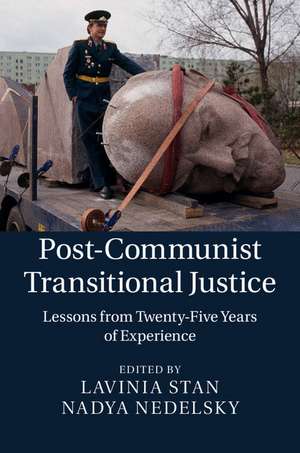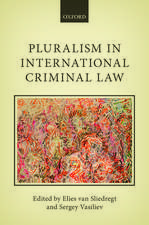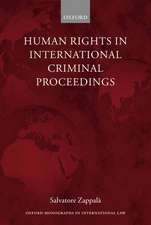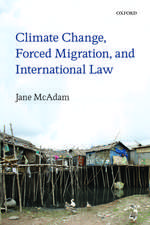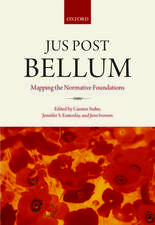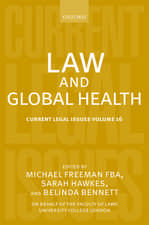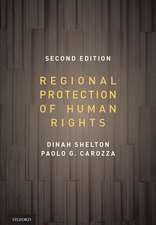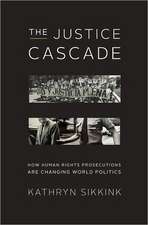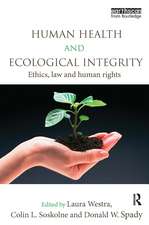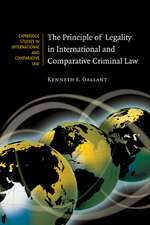Post-Communist Transitional Justice: Lessons from Twenty-Five Years of Experience
Editat de Lavinia Stan, Nadya Nedelskyen Limba Engleză Hardback – 25 feb 2015
Preț: 783.16 lei
Preț vechi: 910.65 lei
-14% Nou
Puncte Express: 1175
Preț estimativ în valută:
149.87€ • 162.74$ • 125.90£
149.87€ • 162.74$ • 125.90£
Carte tipărită la comandă
Livrare economică 22 aprilie-06 mai
Preluare comenzi: 021 569.72.76
Specificații
ISBN-13: 9781107065567
ISBN-10: 1107065569
Pagini: 358
Ilustrații: 18 b/w illus. 6 tables
Dimensiuni: 158 x 235 x 24 mm
Greutate: 0.64 kg
Editura: Cambridge University Press
Colecția Cambridge University Press
Locul publicării:New York, United States
ISBN-10: 1107065569
Pagini: 358
Ilustrații: 18 b/w illus. 6 tables
Dimensiuni: 158 x 235 x 24 mm
Greutate: 0.64 kg
Editura: Cambridge University Press
Colecția Cambridge University Press
Locul publicării:New York, United States
Cuprins
Part I. Determinants of Transitional Justice: 1. Transitional justice and political goods Brian Grodsky; 2. Transitional justice as electoral politics Robert Austin; 3. Explaining late lustration programs: lessons from the Polish case Aleks Szczerbiak; Part II. The Impact of Transitional Justice: 4. The adoption and impact of transitional justice Moira Lynch and Bridget Marchesi; 5. Transitional justice effects in the Czech Republic Roman David; Part III. Key Challenges: 6. The timing of transitional justice measures Cynthia M. Horne; 7. The challenge of competing pasts Monica Ciobanu; 8. Beyond the national: pathways of diffusion Helga A. Welsh; 9. The mythologizing of communist violence Jelena Subotic; Part IV. History, Justice, and Public Memory: 10. Post-communist truth commissions: between transitional justice and the politics of history Andrew Beattie; 11. Public memory, commemoration, and transitional justice: reconfiguring the past in public space Duncan Light and Craig Young; 12. Stories we tell: documentary theater, performance, and justice in transition Olivera Simic; 13. Vigilante justice and unofficial truth projects Lavinia Stan.
Recenzii
'This volume succeeds in presenting a coherent and nuanced account of the post-1989 experience of CEE with dealing with the past. It speaks of several commonalities with regard to not only political manipulations of truth and memory, the abuses and misuses of transitional justice for scapegoating or political legitimacy, the role of liminality and transcendence, but also of the trade-off between truth and democratic development. It convincingly shows that transitional justice in CEE is much broader than the topic of lustration and offers numeric shades of grey to each of the attempted policies of reckoning.' Jessie Hronesova, Nationalities Papers
'I believe that Stan and Nedelsky's ambitious and systematic book is bound to become a work of reference for scholars of transitional justice and area studies, and for political theorists alike. Since the volume forwards the understanding of transitional justice in several different ways, it is also not difficult to see it included in reading lists for advanced seminars or lectures in transitional justice or political theory.' Liviu Damsa, Europe-Asia Studies
'I believe that Stan and Nedelsky's ambitious and systematic book is bound to become a work of reference for scholars of transitional justice and area studies, and for political theorists alike. Since the volume forwards the understanding of transitional justice in several different ways, it is also not difficult to see it included in reading lists for advanced seminars or lectures in transitional justice or political theory.' Liviu Damsa, Europe-Asia Studies
Descriere
Explores how the former communist regimes of Central and Eastern Europe have grappled with the serious human rights violations of past regimes.
